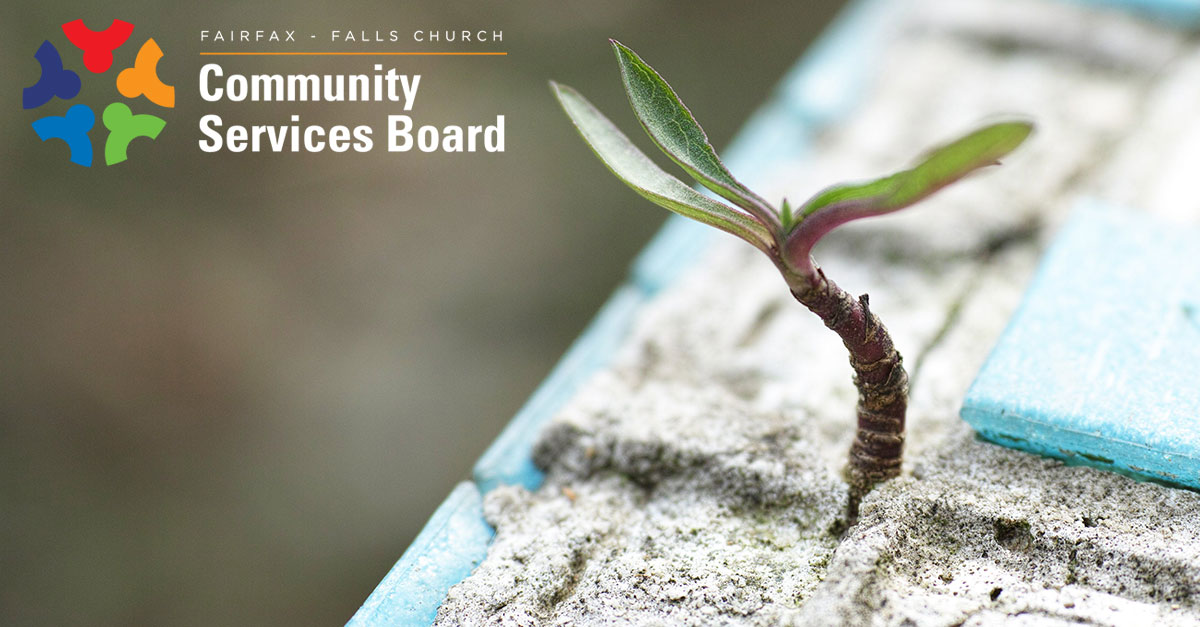April 9, 2025
Over the course of my career, I've witnessed a shift towards greater openness about mental health, particularly how stress impacts people's daily lives. While stigma still exists, it's clear that we're making progress in breaking it down. This is crucial because mental health affects every aspect of our lives—how we interact with our families, loved ones, our work, and even the things we enjoy daily.
- Daryl Washington, Executive Director, Fairfax-Falls Church Community Services Board
How have you seen the perception of stress and or mental health change over the past 30 years?
Over the course of my career, I've witnessed a shift towards greater openness about mental health, particularly how stress impacts people's daily lives. It's inspiring to see so many public figures now sharing their struggles with mental health and the pressures they face every day. This has opened the door for others to share their experiences as well.
While stigma still exists, it's clear that we're making progress in breaking it down. Addressing how we cope with stress and its effects on our mental health and overall well-being is becoming more common. This is crucial because mental health affects every aspect of our lives—how we interact with our families, loved ones, our work, and even the things we enjoy daily.
Why do you enjoy working in this profession?
I enjoy my work for several reasons, mainly the variety it offers. Early in my career, I worked in residential services, which gave me a unique perspective on clients. In residential settings, you witness aspects of clients' lives that you won’t see in other settings. Things, like sharing meals and helping with daily tasks such as laundry. You get to see firsthand how they struggle and where they need the most support.
I also appreciate the opportunity to connect with clients in different ways, such as counseling them and then engaging in activities like playing basketball. This strengthens the bond and makes the work more impactful.
As an administrator, I enjoy the variety of supervising staff and offering insights into improving systems and operations. It’s fulfilling to guide staff on how to support their teams and foster a better organizational culture. Additionally, I engage in a range of tasks from attending group functions and discussing clinical services to program development, grant writing, and advocating for policy changes to improve services.
Do you have any favorite ways to manage stress?
Over the years, my approach to managing stress has evolved. In the past, I wasn't great at handling it. These days, I focus on walking, hiking, and working out at the gym to manage stress more effectively.
I also find it helpful to meet regularly with my peers, other executive directors in region 2. It’s a space where we can share challenges and speak frankly, knowing we face similar challenges. In my role, I’m often the one providing support to others, so it’s important to have a support network of my own.
Do you have any advice or suggestions for individuals who may have anxiety or depression to manage their stress as well?
Find a healthy activity outside of work that you enjoy and create a support system you can rely on when needed. It's also important to have someone at work you trust—someone who can offer honest feedback, even if it’s not what you want to hear. My best mentors were often the toughest on me, and while I didn’t appreciate it at the time, looking back, I’m grateful. Their feedback helped me grow and make necessary changes.
What can the CSB do to support someone who is overwhelmed and noticing the negative impact of stress?
The county offers an Employee Assistance Program, which I strongly encourage everyone to try. It may not be for everyone, but it’s worth exploring. Additionally, we’re in the process of establishing a peer support group and policy, with volunteers already lined up. This will provide trained peers who understand the unique stressors of our work, which can be different from those faced by private therapists.
It's also crucial to create a safe environment where people feel comfortable discussing concerns—whether related to the individuals they serve or the workplace itself. Encouraging open, respectful communication is key. People need to feel heard and supported, and the best way to achieve this is by actively listening to their feelings about difficult topics.
If, as a community member, I'm noticing that my stress is negatively impacting my life, can I call the CSB?
Calling the main CSB number is helpful when stress is high, and we also have a strong prevention team that provides valuable resources. For example, the ACES training helps people understand how past life experiences shape their current perceptions and interactions. Additionally, we can direct individuals to mental health education and resources for managing stress. I also recommend exploring stress management apps, which offer tools like meditation and mindfulness activities. These can be especially useful for those who prefer tech-based solutions for everyday stress management.
What is the outcome or improvement that you've seen?
The CSB has made a significant impact on individuals’ lives by offering a broad range of services, from prevention to intensive residential care. This variety allows us to serve a population that many other CSBs struggle to reach. We’re one of the few with detoxification and residential treatment programs, as well as intensive case management, jail diversion teams, and outpatient therapy. We also have a robust set of services for individuals with developmental disabilities. Our goal is to meet people where they are—whether it’s mental health, substance use, or developmental challenges—and work with them to reach where they want to be. Our approach is all about listening and partnering to help individuals move forward.
What is your favorite success story?
It's hard to pick just one success story because of the variety of individuals we serve. Reflecting on my time managing the unhoused team, we helped someone who had been sleeping on the streets find long-term supportive housing. Initially, they struggled to adjust, sometimes returning to their campsite, but over time, they learned to feel comfortable in their new one-bedroom apartment, even grocery shopping and preparing meals for themselves instead of relying on fast food or begging.
Similarly, helping someone transition from a state hospital to a community group home is another success. I also think about the closure of the Northern Virginia Training Center. Despite initial resistance, many of the individuals who once lived there are now thriving in the community, enjoying a level of freedom and integration they never had before. These are just a few examples of the successes we've had as an organization.












